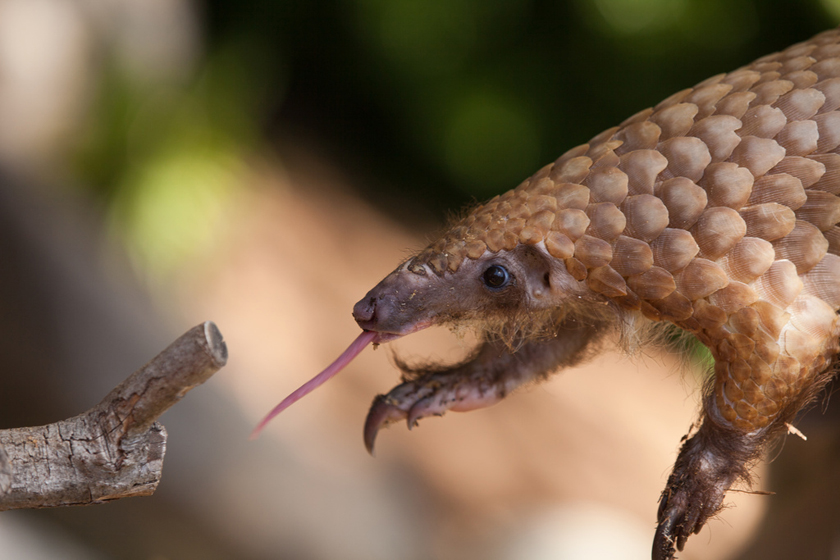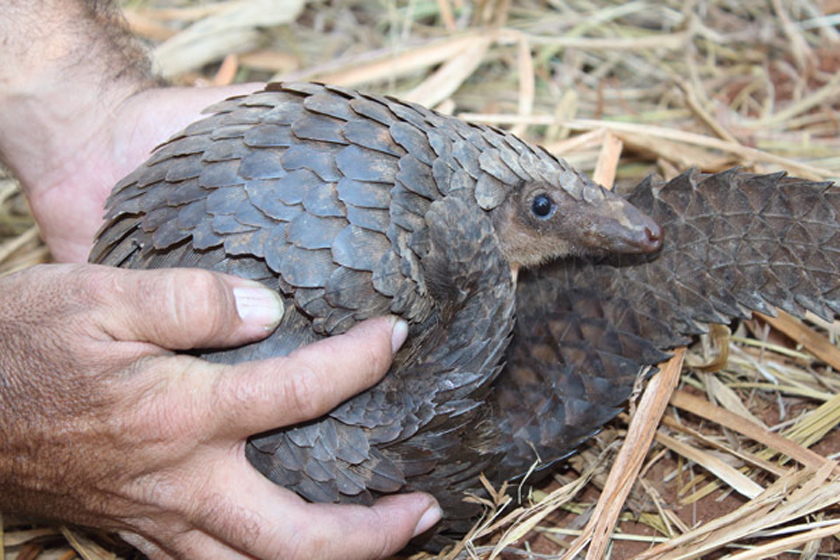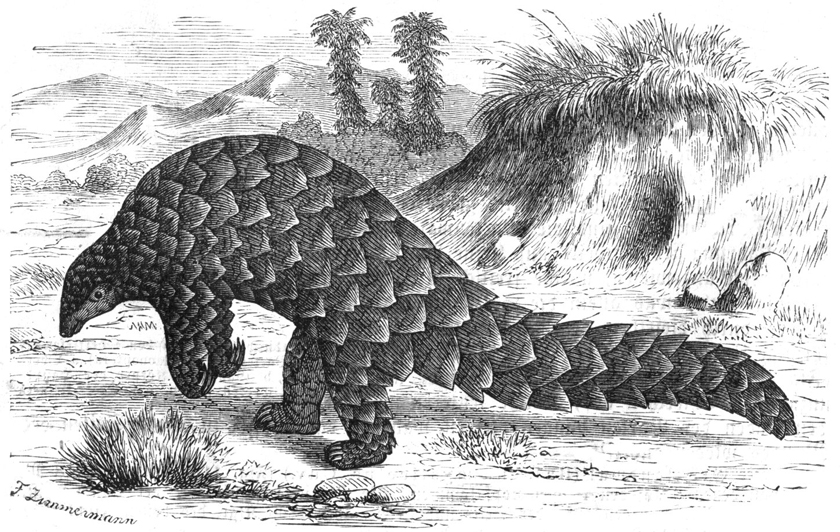Pangolins: You May Not Have Heard Of Them, But Poachers Have
The most illegally traded mammal in the world might just be one you’ve never heard of. Pangolins, often called scaly anteaters, are no match against humans wanting to harm them.
By Vicki Croke
The most illegally traded mammal in the world might just be one you’ve never heard of.
Pangolins, often called scaly anteaters, look something like living artichokes. Their thick scales made of keratin are like armor protecting the animals from predators. But they are no match against humans wanting to do them harm. It’s estimated that a million of them have been poached over the last decade.
A tree pangolin. Ubuntunewsru’s flickr photostream via Creative Commons.
As of this week, when the African ground pangolin’s conservation status shifted from “least threatened” to “vulnerable,” it meant that not one of the eight species of pangolin is considered safe.
Black market demand, mostly in East Asia, is driving the decline. Pangolins serve as both food and medicine there. The secretive and solitary animals, who roll into a ball when threatened, are being eaten into extinction.
A tree pangolin. Sandip Kumar via Creative Commons.
The International Union for Conservation of Nature (IUCN), which determines conservation status, reported:
…The Chinese and Sunda pangolins are now categorized as ‘Critically Endangered’, the Indian and Philippine pangolins as ‘Endangered’, and all four African species are now considered ‘Vulnerable’, as a result of past and on-going population declines.
This is the result of on-going illicit hunting and poaching of pangolins which within Asia, and increasingly in Africa, is driven largely by market demand in East Asia, where pangolin meat is consumed as a luxury food, and increasingly affluent consumers are willing to pay high prices for it, and their scales which are used in traditional medicines.
Pangolins vary in size from just 3.5 pounds to about 73 pounds depending on the species. All are toothless and catch ants or termites with their long, sticky tongues. Their tongues are attached way back in their bodies—near the pelvis—and when completely extended are longer than their head and body length. Their closest relatives include anteaters and sloths.
A ground pangolin. Illustrierter Leitfaden der Naturgeschichte des Thierreiches, 1876.
The group Savepangolins.org writes that as Asia runs out of its own pangolins, traders have expanded operations to Africa:
Despite a commercial trade ban for wild-caught pangolins in Asia, the illegal trade is thriving. Consumers are willing to pay increasingly high prices for their meat, which is being served as a luxury food across many countries in Asia. In traditional Chinese medicine, pangolin scales are also believed to treat a wide variety of conditions including psoriasis and poor circulation.
The illegal trade in pangolin species has reached an epic scale, with the Chinese and Sunda pangolins now classified as Critically Endangered. As the populations of the four Asian pangolin species plummet, traders are now turning to Africa to meet the growing demand.
“All eight pangolin species are now listed as threatened with extinction, largely because they are being illegally traded to China and Vietnam,” says Professor Jonathan Baillie, Co-Chair of the IUCN SSC Pangolin Specialist Group and Conservation Programmes Director at the Zoological Society of London (ZSL).
The IUCN’s pangolin conservation group outlined a strategy for saving the animals. John R. Platt reports in Scientific American:
In addition to the new risk assessment, the pangolin specialist group this week also published a new conservation action plan for the eight species. Entitled “Scaling Up Pangolin Conservation,” it includes plans for monitoring the trade, measuring wild pangolin populations, learning more about their ecology, breeding the animals in captivity to compensate for the wild losses, figuring out how to rehabilitate rescued animals (they don’t do well in captivity) and educating local populations about the species to develop regional support for the animals. The plan also addresses ways to decrease the demand for pangolin meat and scales in China and Vietnam, which it calls “the single most important activity to address the decline in pangolins.”




One Response to “Pangolins: You May Not Have Heard Of Them, But Poachers Have”
I am a practitioner of Traditional Chinese Medicine. I am DEEPLY troubled by the number of species being pushed to extinction by the seemingly insatiable appetite for exotic species by those who consume Chinese Herbal Medicines without regard for their sources. I encourage everyone who relies on this form of healing to shun these endangered ingredients and insist that the practitioners who use them stop and/or be reported to authorities.
Comments are closed.